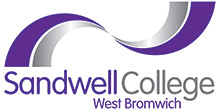Sandwell College’s effective work with the Sandwell Language Network (SLN) has been recognised at this year’s LGC Awards.
Sandwell Council has been shortlisted in the Public Health category for the SLN’s important work in giving 524 vulnerable residents better access to healthcare and education.
The College is one of the network’s lead partners, along with other local organisations including Sandwell Council, Sandwell Consortium, Sandwell Public Health and Sandwell Council of Voluntary Organisations (SCVO).
The SLN aims, by increasing the availability of English language support, to reduce health inequalities for migrant and ethnic minority communities, improve health literacy and access to healthcare services and to reduce social isolation and promote better mental health.
A total of 524 learners have followed the programme, representing 19 ethnicities, 53 nationalities and 39 different main languages. In addition, 75 local volunteers were recruited and trained.
In a survey of people who used the SLN, approximately 9 out of 10 said that it had helped them make NHS appointments and better explain their health concerns to their healthcare professional. In addition, over 90% also said that the language network had helped them get to know people in their local area, which in turn reduced social isolation and improves health and wellbeing.
Sandwell Council’s Cabinet Member for Adults, Health and Social Care, Councillor Suzanne Hartwell, said: “In Sandwell we do our Public Health work in partnership with our community. Local people’s experiences, expertise and enthusiasm are what makes our work so effective. The Sandwell Language Network is a great example of this. I would like to congratulate everyone working and volunteering with the Network for this well-deserved recognition.”
Davinder Kaur, Chair of the Sandwell Consortium, added: “For those of us whose first language is English it is hard to imagine how difficult it would be to access appropriate healthcare for ourselves and our children if we were are unable to communicate in a common language with a doctor, nurse or pharmacist. This important work creates opportunities and encourages people to talk with neighbours, join local activities and navigate health care provision. It gives some of the most vulnerable residents greater confidence, and better access to healthcare and education. In turn, this allows people to have better health outcomes, better qualifications and employability.”

